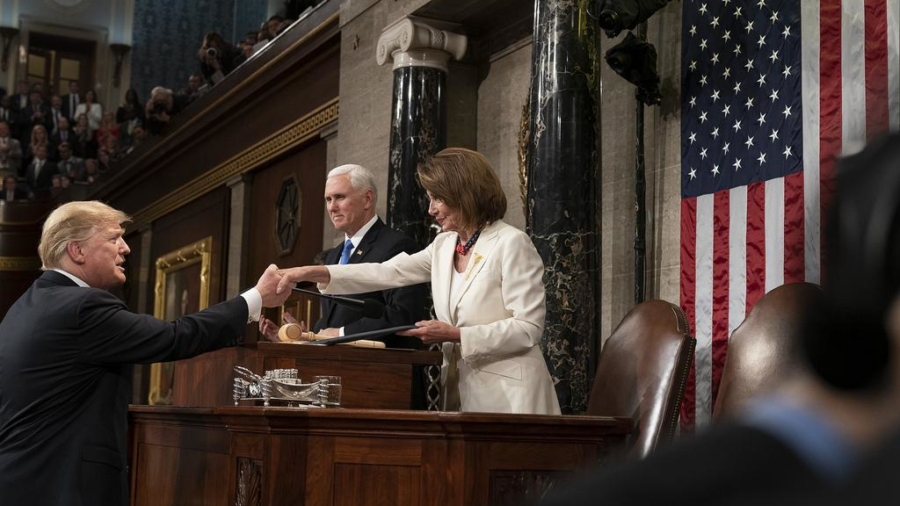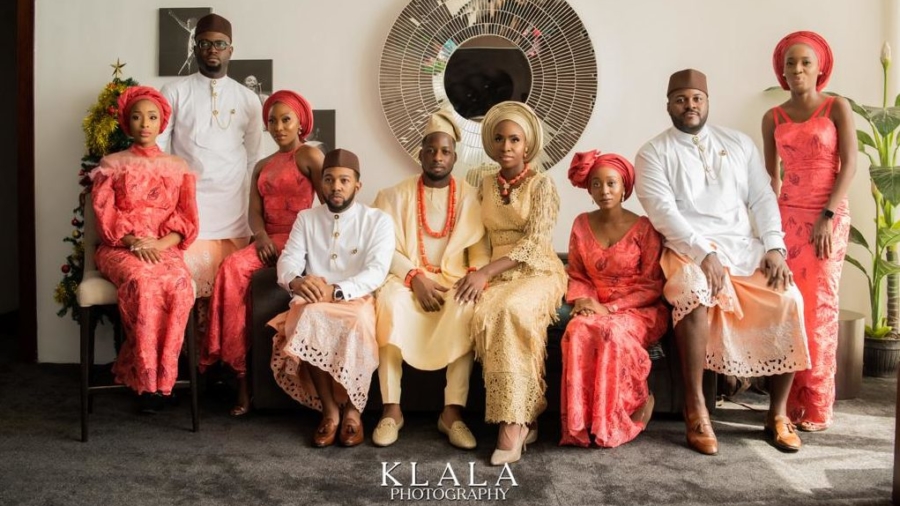You know that scene from Back to the Future? The one where Marty McFly, the main character, delivers a thrilling rendition of the song “Johnny B. Goode” on that red guitar?
It’s one of my favorites.
During that scene, Marty is on stage with a band called “Marvin Berry and the Starlighters.” As Marty continues to rip on the strings, Marvin can’t believe his ears. He runs to call his cousin, Chuck Berry, the famous musician who actually sang the original song in real life:
“Chuck, Chuck! It’s Marvin,” he said. “You know that new sound you were looking for? Well, listen to THIS!”
Listen to this….
In 2015, I received a similar phone call from my friend Ian who’s like family to me. At the time, he was working for an American multinational corporation while on rotation in Lagos, Nigeria.
Ian was so excited. He was telling me all about this new sound he’d encountered one night in Lagos. He described the sound as a combination of Jamaican Dancehall and American Pop music.
Now I knew I could trust Ian’s musical taste. Ever since I met the guy twenty-five years ago, we’ve spent countless nights dancing to Reggae music well into the early hours of the morning. While I tend to rumble around like a fool, Ian is actually a good dancer. He smoothly glides around the floor and he never seems to get tired. The guy can also pick up just about any dance move within seconds.
So when he sent me a few Afrobeat songs, I wasn’t surprised that I got hooked and couldn’t get enough of this new delightful rhythm.
Ian, who had been stationed in Nigeria for four months, quickly fell head over heels in love. I’ll never forget when he came back because he couldn’t stop talking about his life there. The people, the food, the accents, the clothing. He was gushing. So I promised him I would visit Lagos one day.
Then I met his friend, Chukwudubem (or “Dubem” for short). The instant you meet Dubem you just get a good vibe from him. He’s a salt of the earth kind of guy. A cool, laid-back, soft-spoken gentleman who quietly makes his presence known in whatever room he’s in. I met Dubem in 2016 when I was partying with Ian near his new rotation in Dubai. Dubem was born and raised in Nigeria and the more I talked to him, the more curious I got about Lagos.
Over the course of my stay in Dubai, we talked for what felt like for hours and when I returned home we continued to message one another on WhatsApp. I’d ask him questions like: What did he think of Black Lives Matter? Who’s better: Patoranking or Gyptian? What did he think of Black Panther?
Sometimes I wanted to get his perspective on a certain topic. And other times (I have to admit) I wanted him to validate a point that I had been debating with my American friends on the African diaspora.
With every exchange, my curiosity continued to grow. Then one day he mentioned he was getting married to a beautiful Nigerian woman whom he had met in Dubai. He shared that he may not be able to extend an official wedding invite but that I was welcome to tag along with Ian. If the stars aligned I may even be able to attend the after party.
“So you’re saying I can crash your wedding?!” I replied.
He said “yes”! Soon after that, I bought a ticket to Lagos. I’d take off in December.
A few months before we left, I had received an email from 23andMe informing me that they had been able to drill deeper to clarify my ancestry results. Previously, my results showed that I was generally 58% African, 33% European, and 6% Native American. I opened the app on my phone and was pleasantly surprised to learn that the highest percentage of my African ancestry is from—you guessed it—Nigeria!
I am typically never one to get excited about trips abroad until a few days before I leave. However, I had been excited about this trip for months. Between constantly listening to Afrobeat music, to meeting Dubem, and the recent discovery of my Nigerian ancestry, the anticipation for this trip had surpassed any feeling that I had ever had stepping onto an airplane.
But beneath the excitement there was a bit of unease. Here I was onboard a midnight ten-hour direct flight across the Atlantic Ocean to return to a continent that I had never physically been. My mind was racing with questions like:
What if the Nigerians weren’t friendly towards me?
I never go anywhere for eleven days … What if I get bored while I am there for so long?
What if being an American Afro-Latino kid from Brooklyn is not welcome by the people I encounter?
What the hell am I going to wear to this wedding?
Do I know enough dance moves to keep up with Ian?
What if my ancestors were never stolen off the continent to begin with?
When I arrived in Nigeria, I was quickly taken aback by all of the commotion. Apparently, Christmas time in Nigeria is the busiest season of the year. Many Nigerians return from abroad to visit family for the holidays so the streets are jammed with traffic. The humid air is filled with the melodic percussions of Afrobeat music pouring out of every car and bar. Sometimes even today I hear that symphony in my head — the ruckus of the cars, the horns and irresistible beat of “Able God” — and I can’t help but break out my finest Shaku Shaku dance.
All of the top Nigerian musicians are in town. Their concert billboards were plastered everywhere. For me, it’s like a Who’s Who of all the artists I had come to love over the years. I can only imagine that this is what Detroit must have been like during the Motown era in the 60s or the Bronx during the birth of hip-hop in the early 80s.
The club scene is electric. Filled wall to wall with joyous dancing Black bodies. It’s a beautiful sight to behold.
One night, I was doing my usual rumble on the dancefloor when Ian taps me on the shoulder to leave. But I was feeling the vibe and it was only 1 a.m. I wanted more.
“Why are we leaving?” I asked. “The music is so good here!”
A sly smile creeped across Ian’s face, “The music is good everywhere in Lagos!” he replied.
Ian wasn’t exaggerating. Every club we went to had amazing music. Every now and then the DJ would play two or three American songs but that’s it.
After a week of clubbing every night I had taken on the moniker, “Chike from BK.” A nod to my roots but still a label of my difference. We had debated if I might be of the Hausa or Igbo tribe. And ultimately settled on Igbo because of my stature and regal demeanor (kidding).
But alas we were nearing the end of our voyage. The day had arrived for the first of two wedding ceremonies. First, the traditional wedding which was a beautiful tribal ceremony that joined the two families as one and felt more “African.” Then two days later, the “White” wedding which was a more Western style ceremony with a lavish reception. I was ready to immerse myself into these rich cultural experiences.
I’ve been a groomsmen in an inordinate amount of weddings back home. Just off the top of my head I can count about ten, so I understand the jitters of a wedding day. Regardless of my involvement, I always try my best to stay in the periphery and be as helpful as I can to keep the day flowing smoothly. Sometimes I throw in a joke or two to keep the mood light.
Dubem had reached out to get my clothing measurements before I arrived in Lagos so I wouldn’t feel left out. To my surprise, on the morning of the traditional wedding ceremony, I learned that I would be dressed exactly like the groomsmen. I felt a strong sense of belonging as I put on my brown hat, white top, and what can only be described as a pink wrap skirt.
I was ready to attend this meaningful cultural ceremony but still wanted to add a little Brooklyn flavor to my outfit so I slightly tilted my hat to the side.
Before the ceremony, the wedding party began to take pictures and I watched observantly on the sidelines. Then suddenly, Dubem invited me to join them as if I were a member of his family. Stunned, I initially declined as I felt out of place. Most of the members of the wedding party were lifelong friends of the bride and groom.
I don’t know about you, but my parents and I have gone through their wedding photos many times over years and I have asked about every single person represented in those photographs. I was honored that this Afro-Latino kid from Brooklyn by way of Grenada, Puerto Rico, and Cape Verde would forever be documented in Dubem and Ore’s wedding photos.
Maybe one day when their children point to me in their wedding photos they can tell my story.
Maybe they can tell their children about our collective story as we across the African diaspora continue to reconnect with our roots.
Maybe they can share with their children that love — the love of music, the love amongst friends, and the romantic love between partners — has always brought us together.
As I stood there with the sound of cameras flashing, I began to reflect on my ancestors. Their son was back home for the first time. They’d be happy to know this son of theirs was welcomed back by one of his best friends Ian, embraced by his new friend Chukwudubem, and moved to dance by Afrobeats into the wee morning hours. As I envision our ancestor’s benediction upon us, I see our reunion bringing a smile to their faces.
…That’s the new sound I was looking for. The sound of belonging.


